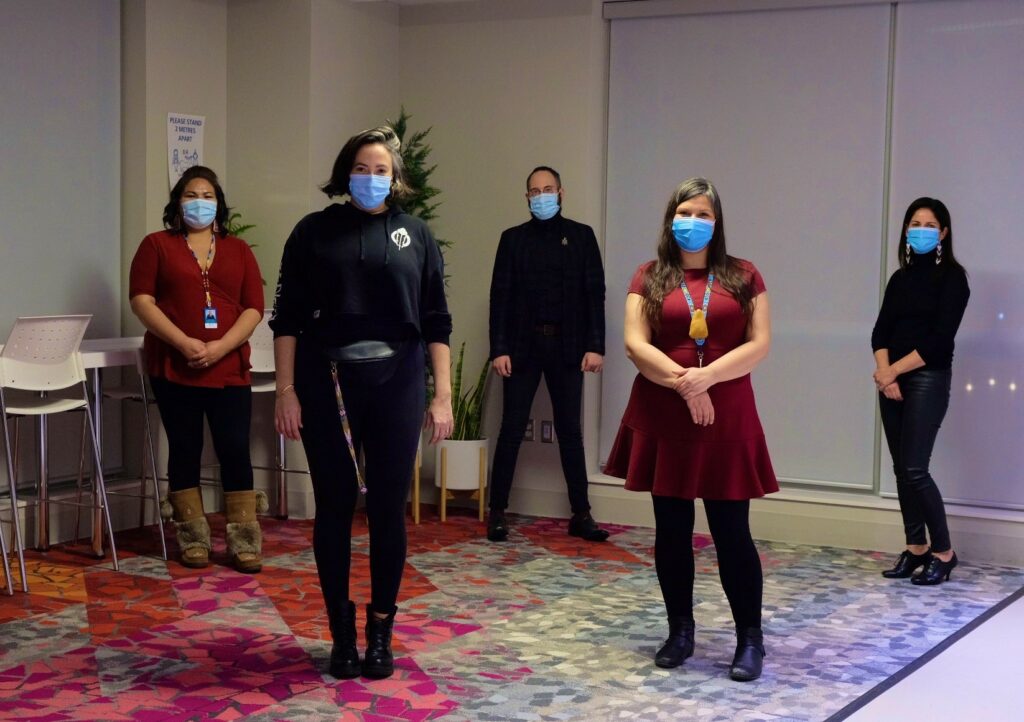Today, the Centre for Wise Practices in Indigenous Health (CWP-IH), in collaboration with the Temerty Faculty of Medicine at the University of Toronto (UofT), held a virtual opening ceremony for the new CWP-IH and Office of Indigenous Health (UofT) Gathering Place at Women’s College Hospital.
The Gathering Place provides a dedicated area for Indigenous learners, staff, faculty, community members and partners from across organizations to safely access traditional medicines, exercise Indigenous ceremonial practice rights and to engage with Elders, Knowledge Keepers, Traditional Practitioners and Educators. It will also host educational and community-centered activities, such as healing, counselling sessions, workshops, small symposiums, mentorship initiatives, as well as learner, community and faculty work in COVID-19 safe ways.
The opening ceremony began with traditional drumming and songs by Kawennanoron (Cindy White), Rosary Spence and Kateri Gauthier. Dr. Lisa Richardson, Strategic Lead in Indigenous Health at WCH, delivered welcoming remarks and led a virtual tour of the new space. She was also joined by Dr. Chase McMurren, UofT Indigenous Medical Education Theme Lead for remarks, with Heather McPherson, President and CEO of WCH, and Dr. Trevor Young, Dean of the Faculty of Medicine at UofT, closing the ceremony.

At Women’s College Hospital, we are committed to implementing strategic approaches to reconciliation in healthcare from national guides and recommendations, such as Wise Practices, The Indigenous Health Primer and Health Values Statement, and incorporating different forms of knowledge into our care and education programs. This includes Indigenous health education and systems change, knowledge translation and health equity research adhering to OCAP principles, public health policy and advocacy stewardship. We also have a curated collection of articles written by Elders, scholars and other recognized leaders in Indigenous healing practices, ethnobotany and land-based epistemology in our health sciences library. Additionally, we feature Indigenous health content and community supports on our website and, of course, we now welcome the new Gathering Place for our Indigenous learners, staff and community members.